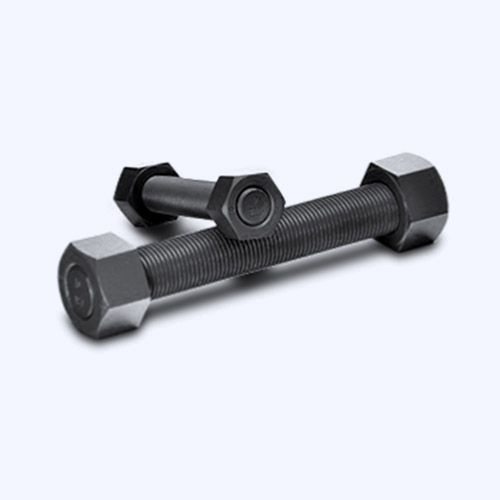

flat washer types
Dec . 17, 2024 21:44 Back to list
flat washer types
An Overview of Flat Washer Types
When it comes to fastening applications, flat washers play a crucial role in distributing load and preventing damage to surfaces. They are commonly used in various mechanical and construction applications, where they enhance the stability and integrity of connections. Given their significance, understanding the various types of flat washers is essential for engineers, contractors, and DIY enthusiasts alike.
What is a Flat Washer?
A flat washer is a thin, disc-shaped piece of hardware with a hole in the center, designed to be placed between a fastener (such as a bolt or a nut) and the material being fastened. The primary purpose of a flat washer is to distribute the load of the fastener over a larger area, thereby reducing the risk of damage to the surface. They also serve to prevent loosening caused by vibrations and can provide electrical insulation and corrosion resistance depending on the material used.
Common Types of Flat Washers
1. Standard Washers These are the most common type of flat washers, made from various materials such as steel, stainless steel, and plastic. They come in different sizes to accommodate the diameter of the bolts or screws used, making them versatile for various applications.
2. Fender Washers Characterized by their larger outer diameter, fender washers are designed to provide greater load distribution. They are particularly useful for applications that require fastening to thinner materials prone to tearing or deforming. Their size helps to prevent the fastener from pulling through the surface.
3. Lock Washers While technically not a flat washer in the traditional sense, lock washers are often categorized with them due to their flat, circular shape. These washers are designed to prevent loosening under vibration. They achieve this by creating friction between the fastener and the surface or by using an uneven surface to grip better.
4. Shim Washers These are thin, flat washers used to fill gaps and correct alignment issues. Shim washers are often used in applications where precise spacing is required, allowing for adjustments in equipment and machinery.
5. Rubber Washers Made of rubber or other elastomer materials, rubber washers provide excellent sealing and cushioning properties. They are typically used in plumbing and electrical applications, where moisture and corrosion resistance are essential.
flat washer types

6. Elastic Washers Also known as spring washers, these are designed to provide flexibility and vibration resistance. They may be found in applications where regular movement or vibration is expected, such as in automotive and machinery.
Materials Used in Flat Washers
The material of a flat washer significantly affects its performance and application. Here are some commonly used materials
- Steel Standard flat washers are often made from high-carbon or low-carbon steel. They are economical and strong but may require a coating (like zinc plating) for corrosion resistance.
- Stainless Steel These washers are used in environments where corrosion is a concern, such as marine and chemical applications. Their strength and durability make them ideal for outdoor use.
- Plastic Plastic washers are lightweight, non-corrosive, and resistant to certain chemicals. They are commonly used in electrical applications or where insulation is necessary.
- Bronze and Copper These materials are used when high conductivity or corrosion resistance is needed, such as in certain electrical applications.
Conclusion
Flat washers are essential components in many fastening applications. By distributing load, providing stability, and offering protection to surfaces, they help ensure the integrity of mechanical connections. Understanding the various types of flat washers and their respective materials allows users to select the most appropriate option for their specific needs, promoting efficiency and durability in their projects. Whether you're working on a simple home repair or a complex engineering task, the right flat washer can make all the difference in the success and longevity of your assembly.
Latest news
-
High-Strength Hot Dip Galvanized Bolts - Hebei Longze | Corrosion Resistance, Customization
NewsJul.30,2025
-
Hot Dip Galvanized Bolts-Hebei Longze|Corrosion Resistance&High Strength
NewsJul.30,2025
-
High-Strength Hot-Dip Galvanized Bolts-Hebei Longze|Corrosion Resistance&High Strength
NewsJul.30,2025
-
Hot Dip Galvanized Bolts-Hebei Longze|Corrosion Resistance&High Strength
NewsJul.30,2025
-
Hot Dip Galvanized Bolts - Hebei Longze | Corrosion Resistance, High Strength
NewsJul.30,2025
-
High-Strength Hot Dip Galvanized Bolts-Hebei Longze|Corrosion Resistance, Grade 8.8
NewsJul.30,2025

